Discrimination Harassment

How can women protect themselves from gender-based discrimination and harassment ?
Gender-based discrimination and harassment are pervasive issues that women face in various settings, including the workplace, education, and public spaces. To protect themselves, women can take several proactive steps to ensure their safety and well-being, including educating themselves about their rights and forms of harassment, creating a supportive network, taking preventive measures, reporting incidents promptly, seeking legal advice and counseling services when needed, and advocating for change by raising awareness and participating in policy making. By employing these strategies, women can better protect themselves from gender-based discrimination and harassment while also contributing to a broader cultural shift towards equality and respect.

Has religion ever been used to justify discrimination in sports ?
Religion has been used to justify discrimination in sports, including apartheid in South Africa, Islamic veiling and swimming, and caste-based discrimination in India. Contemporary issues include Sikh turbans and safety regulations, and Jewish holidays and scheduling conflicts. Addressing these issues requires a balance between respect for religious freedom and principles of equality and fairness in sports.

How can multicultural education help reduce racial and ethnic discrimination ?
Multicultural education is crucial in combating racial and ethnic discrimination. It fosters cultural awareness, intercultural competence, challenges biases, promotes social justice, builds inclusive communities, and prepares global citizens. By doing so, it helps reduce discrimination and creates a more equitable and harmonious society.

What legal resources are available for women who face discrimination or abuse ?
This text provides a summary of legal resources available to women who are facing discrimination or abuse. It outlines various government agencies that enforce laws related to gender-based discrimination and violence, non-governmental organizations that offer support and information, legal aid organizations that provide free or low-cost legal services, and online resources that offer legal information and self-help guides. The text emphasizes the importance of seeking help from these sources if one is experiencing any form of mistreatment or inequality based on their gender.
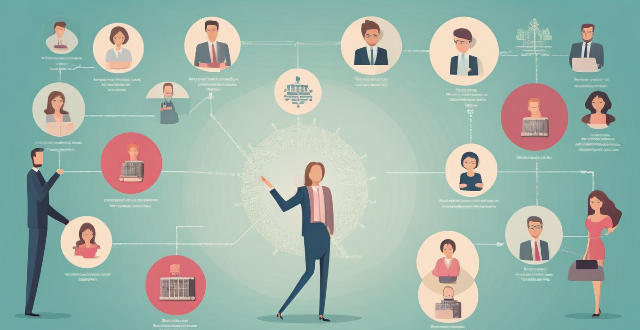
How does the law address issues like sexual harassment and stalking against women ?
The article discusses the legal framework for addressing sexual harassment and stalking against women, including civil and criminal laws, employment law, and legal remedies available to victims. It emphasizes the importance of understanding one's rights and options under the law to hold perpetrators accountable and create a safer environment.
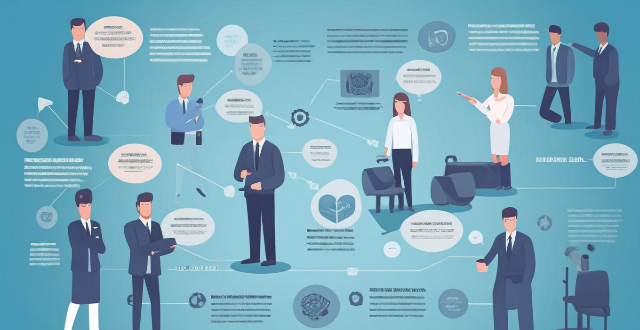
How can sports organizations work to address issues of discrimination and exclusion within their own communities ?
Strategies for sports organizations to address discrimination and exclusion include creating diverse leadership teams, implementing anti-discrimination policies, promoting inclusive language and culture, fostering open communication, educating members about inclusivity, and collaborating with other organizations.
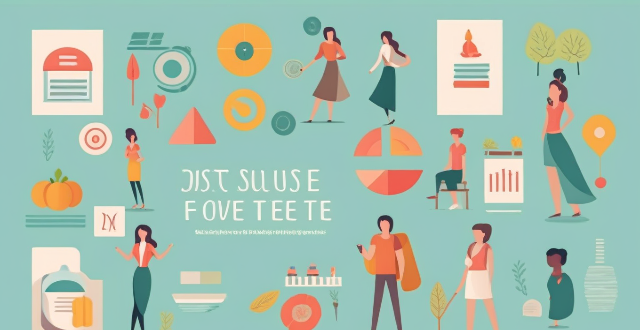
What are the legal rights of women in the workplace ?
This text discusses the legal rights of women in the workplace. It outlines five key areas: equal pay, anti-discrimination, pregnancy leave, harassment and bullying, and parental leave. The text explains that women have the right to receive equal pay for equal work, be protected from discrimination in hiring, promotion, and termination, take pregnancy and parental leave without losing their job or facing negative consequences, and work in an environment free from sexual harassment, bullying, and other forms of gender-based misconduct. The text concludes by emphasizing the importance of these rights in ensuring that women can work in a safe and supportive environment where they are treated fairly and with respect.

What are some common challenges faced by women in the workplace, and how can they be addressed ?
The article discusses common challenges faced by women in the workplace, including gender bias, work-life balance issues, harassment and discrimination, and lack of mentorship and networking opportunities. Solutions to these challenges are also provided, such as addressing gender bias through pay equity analyses and blind hiring processes, promoting work-life balance with flexible work arrangements and parental leave policies, creating a safe and respectful workplace through clear policies and training on harassment prevention, and providing mentorship and networking opportunities through mentorship programs and leadership development programs. The article concludes that addressing these challenges requires a concerted effort from both individuals and organizations to create a more equitable and supportive environment for women in the workforce.

What impact do inclusive policies have on minority groups and marginalized communities ?
Inclusive policies have a significant impact on minority groups and marginalized communities, promoting equality, diversity, and fairness in society. These policies improve access to education and employment opportunities, increase representation in government and decision-making processes, reduce discrimination and harassment, and improve health outcomes for these communities. Overall, inclusive policies help ensure that all individuals have equal opportunities to participate in all aspects of life.

How can personal safety training help prevent sexual harassment and violence in the workplace ?
Personal safety training is crucial for preventing sexual harassment and violence in the workplace. It educates employees on recognizing inappropriate behaviors, understanding reporting procedures, implementing prevention strategies, building awareness, and creating a supportive culture. This training empowers individuals to maintain a safe work environment and fosters a culture of respect and professionalism.

How can women deal with sexual harassment or unwanted attention while traveling ?
Dealing with Sexual Harassment or Unwanted Attention While Traveling: - Be Aware of Your Surroundings - Dress Appropriately - Use Body Language - Learn Key Phrases in the Local Language - Keep Your Belongings Close - Stay in Groups - Trust Your Instincts - Seek Help When Needed - Document the Incident - Report Incidents When Appropriate

What are the common challenges faced by women in the workplace ?
The article discusses common challenges faced by women in the workplace, including gender bias and stereotyping, work-life balance issues, harassment and discrimination. It suggests strategies for overcoming these challenges, such as advocating for equal opportunities and fair treatment, building a support network, and seeking legal recourse when appropriate.

How has the #MeToo movement influenced perceptions of female leadership ?
The #MeToo movement has increased awareness of gender bias and prompted changes in corporate culture, leading to greater representation of women in leadership roles. However, challenges remain in achieving true gender equality.

How can companies promote gender equality in the workplace ?
In full: Companies can promote gender equality in the workplace by implementing gender-neutral hiring practices, providing equal opportunities for advancement, ensuring equitable pay and benefits, fostering an inclusive culture, addressing harassment and discrimination, supporting women in non-traditional roles, and celebrating achievements and diversity.
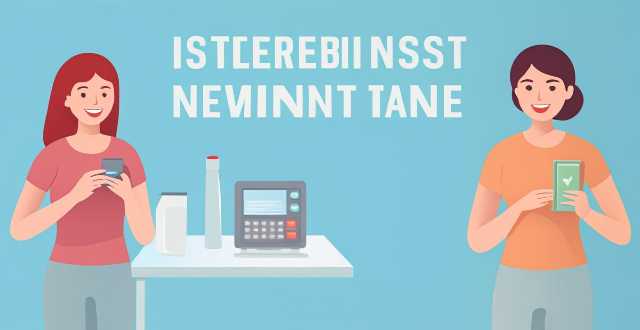
Can you explain the concept of intersectionality as it relates to women's rights ?
Intersectionality is a term used to describe the interconnectedness of various forms of oppression and discrimination, including race, gender, sexuality, class, ability, and other factors. It recognizes that individuals can experience multiple forms of discrimination simultaneously, and acknowledges that not all women have the same experiences or face the same challenges. Intersectionality advocates for an approach that takes into account all aspects of a person's identity and experiences, recognizing and addressing the ways in which different forms of discrimination overlap and intersect. This concept is important for understanding and addressing women's rights because it recognizes the diversity of women's experiences and the need for a nuanced approach to advocacy and policy-making.

What steps can be taken to achieve gender equality in the workplace ?
To achieve gender equality in the workplace, organizations should implement diversity policies, encourage women to apply for leadership roles, address sexual harassment, offer flexible work arrangements, and foster an inclusive culture. These steps will create a fair and diverse work environment where everyone feels valued and respected regardless of their gender identity.

How do inclusive policies benefit society as a whole ?
Inclusive policies are designed to promote equality, fairness, and social cohesion by eliminating barriers and discrimination. These policies benefit society as a whole by ensuring equal access to resources, services, and opportunities for all individuals regardless of their background, abilities, or circumstances. In addition to promoting equality and fairness, inclusive policies also enhance social cohesion by fostering a sense of belonging and mutual respect among different groups within society. This leads to reduced discrimination, increased tolerance, and strengthened community bonds. Inclusive policies also have positive economic outcomes by expanding the talent pool, reducing poverty, and stimulating consumer spending. Furthermore, these policies foster innovation and creativity by providing diverse perspectives, encouraging risk-taking, and promoting collaboration. Finally, inclusive policies can enhance a country's global competitiveness by attracting talent, improving international relations, and driving economic growth.
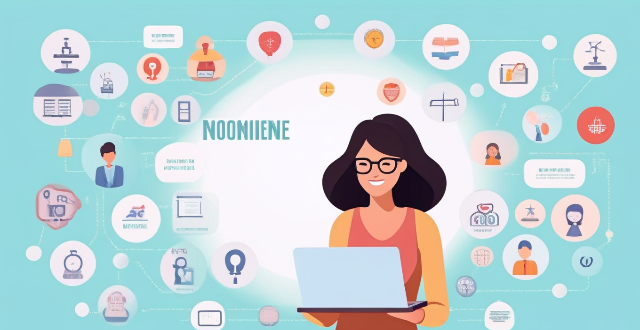
What is the status of women in STEM education and careers ?
The text provides a comprehensive overview of the status of women in STEM education and careers. It outlines key challenges and disparities faced by women at different levels of their academic and professional journeys, from undergraduate education to senior positions in academia and industry. The article also discusses barriers such as bias, stereotyping, workplace culture issues, and limited resources that contribute to these disparities. Initiatives aimed at improving the representation and advancement of women in STEM fields are highlighted, including educational programs, professional development opportunities, and policy changes. Despite progress, the need for continued efforts to achieve gender parity in STEM is emphasized.

What are some examples of unethical behavior in sports ?
Unethical behavior in sports is a serious issue that can have negative consequences for athletes, teams, and the sport itself. Examples of unethical behavior in sports include cheating, corruption, bullying and harassment, doping, and unsportsmanlike conduct. Cheating can take many forms such as using performance-enhancing drugs or tampering with equipment. Corruption involves dishonest practices such as match-fixing, bribery, and extortion. Bullying and harassment create a toxic environment that can harm the mental health and well-being of athletes and staff members. Doping involves the use of illegal substances or methods to enhance athletic performance. Unsportsmanlike conduct refers to behavior that goes against the spirit of fair play and respect for opponents. Addressing unethical behavior in sports requires education, enforcement of rules and regulations, and strong penalties for those who engage in it.

Are there any specific challenges faced by transgender athletes in sports, and how can these be addressed ?
Transgender athletes face unique challenges in sports, includingTransgender athletes face unique challenges in sports, including lack of inclusive policies To address these issues, education and awareness campaigns are needed to promote understanding and acceptance. Inclusive policies and guidelines should be developed to protect the rights of transgender athletes and ensure fair competition. A supportive environment with accessible facilities and resources is crucial for their well-being. Mental health support services tailored to their needs can help them cope with the stress and pressure of being a transgender athlete.

What challenges do women face in achieving leadership positions ?
Women face challenges in achieving leadership positions due to societal, organizational, and personal factors. These include gender stereotyping, work-life balance issues, bias and discrimination, lack of sponsorship, confidence and self-promotion difficulties, and risk aversion. To overcome these barriers, both individual actions such as developing a growth mindset and building supportive networks, and systemic changes like implementing diversity policies and creating mentorship programs are necessary.

How does scientific literacy among women impact society ?
Scientific literacy among women has significant benefits for society, including improved health outcomes, increased economic opportunities, enhanced environmental stewardship, greater participation in policy decisions, and promotion of gender equality. However, challenges such as lack of access to quality education, gender biases in STEM fields, limited role models, and workplace discrimination must be addressed to fully realize these benefits.

How can we encourage more girls to pursue careers in science and technology ?
To encourage more girls to pursue careers in science and technology, several strategies can be employed, including introducing female role models in STEM fields, offering targeted scholarships, creating supportive learning environments, fostering industry collaboration, promoting diverse perspectives, building confidence, improving media representation, advocating for policy changes, and engaging communities. Implementing these measures can help create an environment where girls feel empowered to explore and excel in science and technology.

How effective have feminist movements been in improving women's lives ?
Feminist movements have been transformative for women's lives by advancing their rights and opportunities. They have challenged societal norms, dismantled barriers, and fostered legal and cultural changes. Key areas of impact include legal changes such as suffrage, equal pay, reproductive rights, domestic violence, and sexual harassment laws. Cultural shifts have been made towards challenging gender stereotyping, improving media representation, and promoting education and empowerment. Economic participation has seen more inclusive workplaces, support for female entrepreneurs, and advocacy for fair labor practices. Health and well-being improvements include better maternal health care, increased access to health services, and de-stigmatization of mental health issues. Political representation has seen more women in leadership roles and the implementation of quota systems. Educational advancements include initiatives to keep girls in school longer and increase access to higher education. Social security and safety measures have been put in place to protect women from violence and trafficking. Overall, feminist movements have been instrumental in shaping a more equitable world for all genders.

What policies have countries implemented to ensure equal access to education for both sexes ?
Policies for Equal Education Access: Key Policies and Challenges

How can we use sports to promote gender equality and empower women and girls ?
Promoting gender equality and empowering women and girls through sports involves increasing visibility, ensuring fair representation, improving access and inclusivity, providing education and training, implementing policy and legislation, promoting health and wellness, encouraging economic empowerment, engaging the community, and fostering cultural change. These efforts aim to break down barriers, challenge stereotypes, and create opportunities for women and girls to thrive both on and off the field.

What role do technology and online learning play in advancing women's education ?
Technology and online learning have revolutionized the education sector, providing unprecedented opportunities for learners worldwide. For women, these advancements are particularly significant, addressing historical barriers to education and creating a more inclusive learning environment. The integration of technology and online learning has significantly advanced women's education by offering accessibility, promoting equality, empowering economically, personalizing learning experiences, building supportive communities, and overcoming sociocultural challenges.

What are the potential long-term consequences of large-scale climate-related migrations ?
The potential long-term consequences of large-scale climate-related migrations are multifaceted and complex. They include strain on resources and infrastructure, social and cultural tensions, loss of human capital, economic challenges, security concerns, and environmental consequences. These consequences extend well beyond the immediate effects of relocation and require a comprehensive approach to address them.

How have historical female figures influenced modern-day feminism and women's rights movements ?
This article explores how historical female figures have influenced modern-day feminism and women's rights movements. It discusses early pioneers like suffragettes and abolitionists, civil rights era figures such as Rosa Parks and Coretta Scott King, second-wave feminists including Betty Friedan and Gloria Steinem, and modern-day feminists like Malala Yousafzai and the #MeToo movement. These individuals have played crucial roles in shaping the course of feminism and women's rights movements, paving the way for future generations to fight for equality and justice.
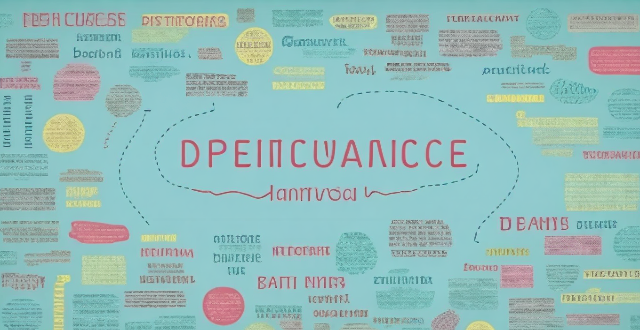
What is the definition of privacy rights ?
The text discusses the definition and importance of privacy rights, which are fundamental human rights that allow individuals to control access to their personal information and protect themselves from unreasonable interference or intrusion into their private lives. Privacy rights include the ability to choose what information about oneself is disclosed and to whom, as well as the power to determine how that information is used. The key aspects of privacy rights include control over personal information, protection from unreasonable interference or intrusion, and autonomy and self-determination. Privacy rights are essential for maintaining individual freedom and dignity, promoting trust and confidence in society, and creating a more just and equitable world where everyone has the opportunity to live their lives with dignity and autonomy.